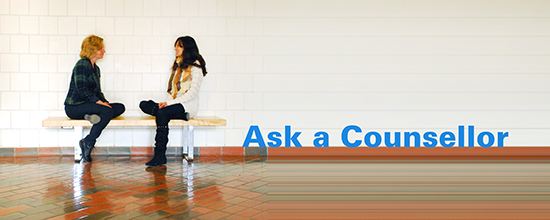
My Dad died and I’ve lost all motivation
Question: Ever since my dad was diagnosed with a terminal illness just over a year ago, I’ve lost all motivation to attend classes, do well in classes, and I have no idea what I want career-wise anymore nor do I ever find myself feeling happy. He passed away 11 months after being diagnosed and I watched his mental and physical health decline as well as all his suffering throughout. How can I get past this, and bring myself back to how I was before this all started?
I am sincerely sorry for your loss. I don’t want to make too many assumptions about what has been happening for you, but what you describe is the kind of experience that can shatter our sense of the world. Watching someone you love suffer through a terminal illness is a heart wrenching, yet we often call on a depth of strength in ourselves and try to not add our own fears and sadness to the worry and grief we see in others. All of this shakes our assumptions about life in a very deep way, and we require time to make ourselves, and the world, comprehensible again.
If I understand your timeline correctly, you have not had much time for making the world understandable again. I imagine grief still hits you like the tsunami some people describe it as, and this is exhausting. A loss of motivation, feeling uncertain about your future, and wishing for your old self back is a pretty understandable outcome from all of that. One of the ideas that I find helpful for the process of bringing yourself back, is mourning. Mourning describes what we do to actively engage in healing from a loss. You might not be able to bring yourself back to how you were before this all started, but with time you can reconnect with your self and others in a meaningful way, and you can re-imagine your future.
I’m not sure what you identify as your culture and if that culture has resources for how to mourn (practices, ceremonies, steps), but for many of us in Canada learning about mourning begins when we are faced with a death of someone close to us. Despite this, there seem to be quite a few people with opinions about the stages of grief, how long healing should take, and how to go about it (I suspect you have bumped into those opinions). In the end research tells us it is a very personal and unique process. And all those steps? It seems we skip around and over and feel all kinds of complicated things in our own order. Sometimes we just want to skip over the grief (maybe numb ourselves with substances or use distractions so we can feel like we are back into life), and sometimes we can get stuck in the grief (don’t take those small steps back into routines, withdraw). It seems neither really serves us. What does seem to help is when people give themselves time to acknowledge their grief and mourn the loss, but then also allow themselves to get back into life in small steps. Moving back and forth between mourning and rebuilding seems most helpful.
So it is not just about time to heal, although giving yourself time is certainly important, it can also be about taking small steps that help you to acknowledge the loss, perhaps find ways to feel connected to your father, and explore what matters to you in this changed world. This can’t just happen in one go, and it will require you to take good care of yourself. The classics will do, though it may be hard at first: good nutrition, sleep, exercise, social time, and doing things you used to enjoy, are a good start. Perhaps there are times you will feel more like your past self. Likely waves of grief will still bowl you over unexpectedly. However, you may also discover new things about which you feel passionate.
Please know that if you are ready to talk more about this, a counsellor is available to listen and explore what recovering from this loss will look like for you.
All the best,
Mirjam
